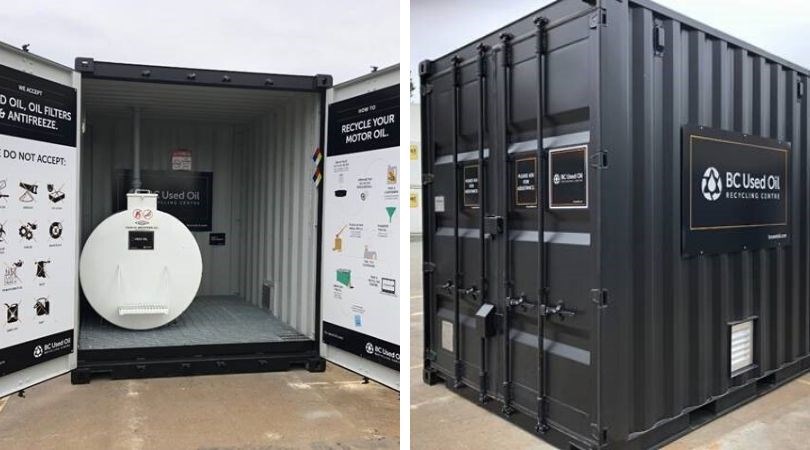Prince George now has an upgraded used oil recycling facility at the Vanway Regional Transfer Station.
B.C. Used Oil Management Association (BCUOMA), a not-for-profit group dedicated to the collection and recycling of lubricating oil, oil filters, oil containers, antifreeze and antifreeze containers, and over the past three months, seven used oil recycling facilities across the province have been upgraded with new environmentally safe infrastructure.
“The Return Collection Facility infrastructure grants that businesses and municipalities received from BCUOMA provided them with a 10-foot or 20-foot modified sea container, and 1,100 to 2,200-litre tanks. These new and upgraded used oil recycling facilities will ensure the responsible collection and management of used oil, antifreeze, filters and containers,” said David Lawes, CEO, BC Used Oil Management Association in a news release.
“We are dedicated to providing British Columbians with environmentally safe, free to use, and convenient RCFs.”
These upgrades include the Vanway Regional Transfer Station in Prince George at 6556 Broddy Rd., as well as upgrades at the Mackenzie Regional Transfer Station and McBride Transfer Station.
Used oil is a valuable resource and, if it is recycled at one of BCUOMA’s dedicated RCFs, it can be recovered and re-refined into new lubricating oil. Any vehicle maintenance facilities, automobile owners, and other machinery maintenance operations that use oil also can use re-refined oil.
Additionally, used oil filters contain reusable scrap metal, which steel producers can recycle metal products like rebar, nails and wire. Used antifreeze is reprocessed to produce new automotive antifreeze. Plastic oil and antifreeze containers are recycled into new oil containers, flowerpots, pipe, guardrails, and patio furniture.
Each year, approximately 50 million litres of oil, and 3 million litres of antifreeze are collected and responsibly managed through the approximately 300 public collection facilities and over 4,000 generators across the province, which are managed by the BCUOMA program.
In 2019, BCUOMA collected more than 51 million litres of used oil which was the highest total amount in the program’s history.

